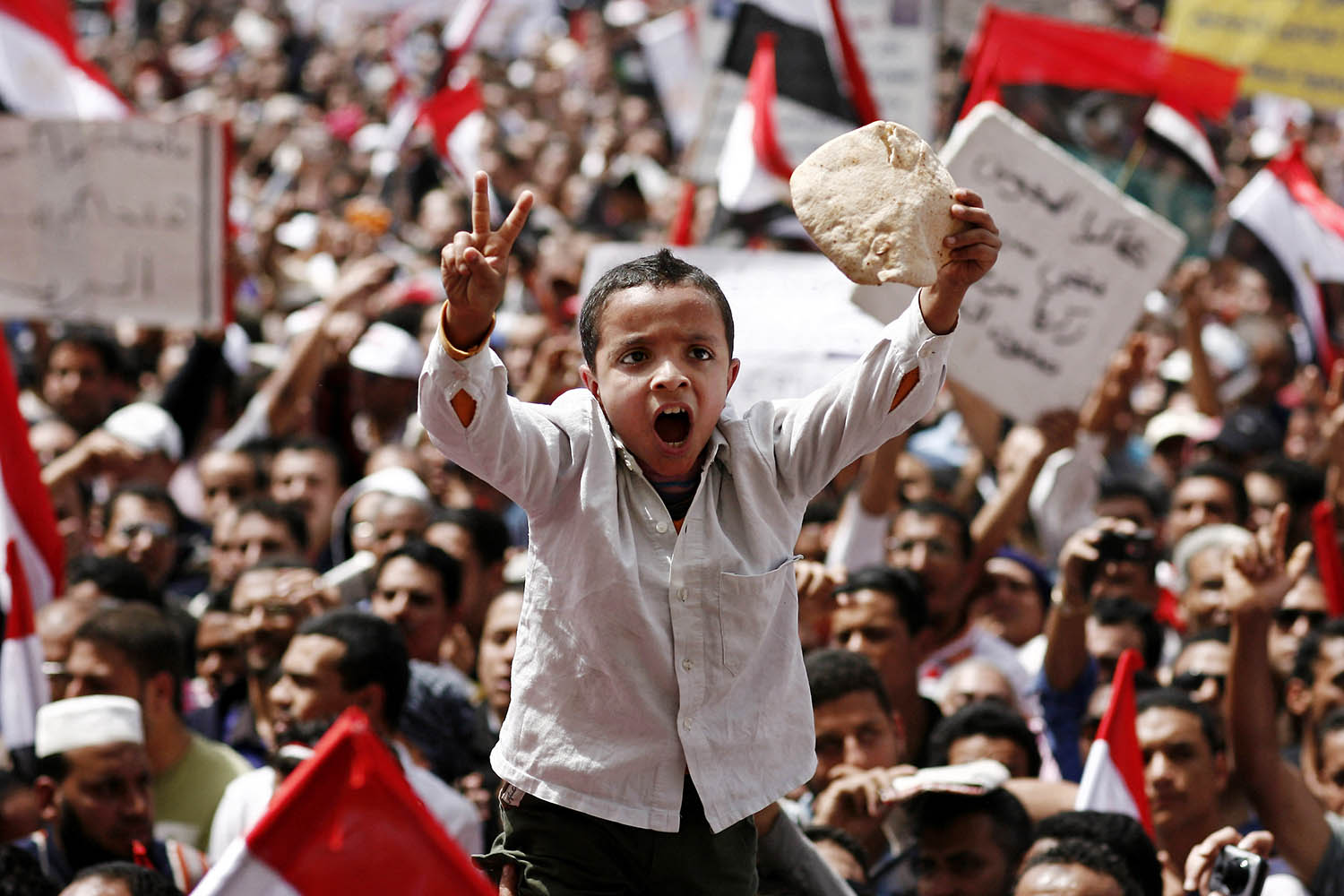
- Two people were killed after reported explosions on the Kerch bridge linking Crimea and Russia.
- Jane Birkin, a British-born singer and actor, died at her home in Paris aged 76.
- Carlos Alcaraz, 20, won Wimbledon after defeating Novak Djokovic in an epic five-set final.
Egypt’s president Abdel-Fatah al-Sisi recently gathered senior leaders to discuss next year’s election and bemoaned how the country is being run, according to the country’s last remaining independent media outlet.
So what? He has no one to blame but himself. A decade after seizing power in a military coup, Sisi has cemented complete and unyielding control of the country, while Egypt’s 110-million strong population is getting poorer every day.
Unhappy anniversary. Ten years ago, Sisi overthrew Mohamed Morsi, the country’s only democratically elected but divisive leader who succeeded autocrat Hosni Mubarak in 2011 after a popular uprising.
Sisi ruthlessly cleared pro-Morsi protesters from several tent encampments in Cairo, with estimates of almost a thousand dead. He then promised change, telling citizens he was founding a new republic with routes to prosperity.
He now appears to be out of ideas. A referendum in 2019 extended his rule past 2030, but running for election virtually unopposed and stamping out all opposition makes the Egyptian leader solely responsible for his country’s future.
Egypt’s problems are growing, particularly its finances.
- The Egyptian pound has devalued by almost half against the dollar since last March, making it harder to import wheat. Egypt is a top wheat importer, using the grain to make heavily subsidised bread. Russia’s invasion of Ukraine last year helped propel the economy into crisis.
- Food inflation is running at 60 per cent, with a once-thriving middle class now taking on second jobs. Sixty per cent of the population is classed as poor or vulnerable.
- Despite pressure from the IMF and Sisi’s traditional backers in the Gulf to rein in spending, the Egyptian state is burning cash after financing several glittering megaprojects, including a new capital city on the edge of Cairo.
Yezid Sayigh of the Carnegie Endowment for International Peace says Egypt is missing its IMF loan targets. Sayigh says Egypt failed to raise $2 billion in foreign currency by the end of June, a key condition to access the second tranche of the $3 billion IMF programme. Fears are rising that Egypt could default on its debts.
But solving the economic crisis requires Egypt to follow the IMF’s advice, namely reducing the military’s grip on the economy, which Sisi has historically avoided.
Speak no truth. Egypt is also experiencing the worst human rights crisis in the country’s history. Tens of thousands remain behind bars, while the organisation Reporters Without Borders estimates that Sisi’s regime has jailed at least 170 journalists over the past decade, making Egypt “one of the world’s biggest jailers of journalists.”
Sisi has spent years crushing any form of criticism, using a vast police state to silence critics from politicians, journalists and NGOs down to citizens who complained on social media. Sisi once promised to “remove from the face of the earth” those who threaten the state, meaning his office.
In May, the Egyptian president launched a “national dialogue” to give select groups a forum to voice their concerns. But there are few signs Sisi is serious about this exercise; he reportedly rejected anyone framing Egypt’s current crisis as a political problem.
Mohamed Anwar al-Sadat, the nephew of Egypt’s former leader, summarised the situation in a recent communiqué. “The state still stands unchanged in the middle of the deteriorating economic situation, incapable of offering any feasible solutions as if we have no option but to passively accept the status quo,” he said.
Egyptians are aware that protest or public dissent can lead to arrest or deadly reprisals. Many are leaving the country; those who remain privately wonder what other options they have left.











